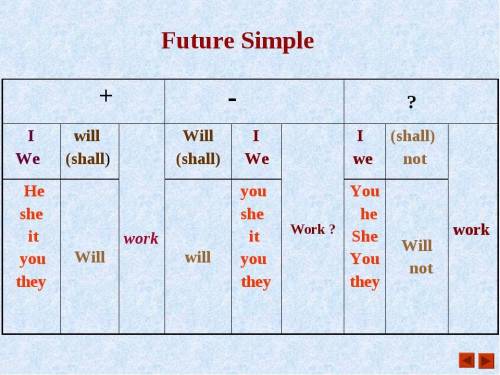Объяснение:
1.I have to do my homework today. 2.I have to exercise tomorrow. 3.I had to eat yesterday.
Время Future Simple ссылается на действие, которое совершится в неопределенном или отдаленном будущем.
д ля того, чтобы поставить глагол во временную форму Future Simple, нужно использовать его начальную форму и вс глагол will. В устной речи will чаще всего сокращается до формы ‘ll, которая может использоваться во всех лицах. Однако, в современном английском, особенно в устной речи, will стал использоваться для всех лиц:
Примечание:
Ранее при употреблении будущего времени для первого лица (I, we) было принято использовать вс глагол shall:
Объяснение:

Объяснение:
It is no exaggeration to say that we all would like to be able to speak every language in the world. One way to do it is to have a chip planted in our brains. At first glance, the idea seems great, but we should consider all pros and cons.
There are some benefits of having such chip. Firstly, travelling abroad would be much easier. The language of your destination country could be downloaded into your chip before the trip, which means the opportunity to save on translation costs. Secondly, ability to speak lots of languages opens up a world of job opportunities. Thirdly, you would be able to read any books and documents you need and make more friends all over the world.
On the other hand, there are a few disadvantages. To begin with, not everybody would be able to afford this chip. Next, there is a high probability that a hacker or a malicious user would gain access to the chip.
To sum up, the benefits of having a chip outweigh its disadvantages
Маму помагать первый во Второй во дома кбираться. Трети в уроки делать